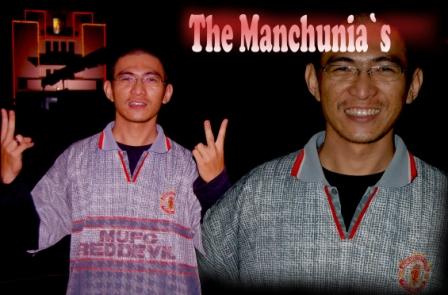The dawn of the 1990's saw Alex Ferguson collecting his first silverware as Manchester United manager, and Liverpool winning their last League Championship with an ageing team. The tide was turning…
Fergie's first FA Cup, achieved after a replay against Crystal Palace, seemed at the time to be a stand-alone success, one that possibly saved his job after another poor season in the League. But nine years later, it seemed that Lee Martin's winning goal against Palace lit the fuse for an explosion of unprecedented success.
First and foremost, winning the FA Cup in 1990 allowed United to make their return to European competition after an absence of five years. Far from being rusty, they went all the way to the final of the European Cup Winners Cup in Rotterdam where their opponents were Barcelona, the former club of United striker Mark Hughes. Two goals by Hughes sealed the match 2-1 in Fergie's favour in May 1991, 23 years after the club's previous triumph in Europe.
The other long wait, for that elusive League Championship, very nearly ended in April 1992. The Reds had already won Fergie's third trophy in March, the League Cup, and were in a two-horse race with Leeds. Liverpool were out of the running, but they still had a say in the destiny of the title, beating United 2-0 at Anfield to ruin their challenge.
The 1991/92 title would be remembered in Manchester as the title that United lost, rather than the one that Leeds actually won. Leeds, after all, were not the greatest of football powers in the 1990's and their star quality was further reduced when they allowed one of their best players to join Manchester United in December 1992.
In selling Eric Cantona to Old Trafford, the Yorkshire club practically handed over the keys to the League Championship. The Frenchman brought that little extra bit of magic that had been missing from United's previous campaigns and was an instant hit with the Mancunian faithful, scoring nine goals to help the Reds win their first title in 26 years.
In the following season 1993/94, the team virtually picked itself en route to an historic League and FA Cup Double, with Cantona sporting the number seven shirt that had been Bryan Robson’s property for so long. The number one, meanwhile, was undoubtedly Peter Schmeichel, arguably the best goalkeeper ever seen at Old Trafford.
Cantona’s eight-month absence from January 1995, following his clash with a fan at Crystal Palace, proved to be United’s undoing as they tried to defend their Double. They lost the title by one point to Blackburn Rovers and then lost the FA Cup final by one goal to Everton. The former champions were hampered at Wembley by an injury to Steve Bruce, the brave captain who was a defensive rock in the early 1990’s.
Bruce also missed the following year's FA Cup Final, at the end of the 1995/96 season, but this time the result was rather different. Liverpool stood between United and a first-ever ‘Double Double’ and were holding out for extra-time, when Cantona struck home a sublime shot in the 86th minute. The French skipper had throughout the season been an inspiration to the talented young players in the team, including David Beckham and Gary Neville.
In May 1997, Cantona helped the club to its fourth League Championship of the decade. It was to be his last, as he surprisingly retired from football later that same month. The shock waves of Eric’s decision seemed to last for a whole year, as the Reds went empty-handed in 1997/98 while Arsenal won the Double. Again, injuries to key players, especially Ryan Giggs and Roy Keane were cited for United’s downfall.
The influence that Giggs could have on results was never more apparent than in the 1998/99 FA Cup semi-final replay, when he scored perhaps the goal of the decade – a solo run and finish that left Arsenal's defenders grasping at thin air. It booked United's place in their fifth FA Cup final of the 1990's, and this time they won it, beating Newcastle United 2-0 with goals by Paul Scholes and substitute Teddy Sheringham.
That result clinched United's third Double, six days after the Premiership title had been wrapped by Andy Cole's goal against Tottenham at Old Trafford. But still there was more to come from a remarkable campaign.
After an epic Champions League semi-final against Juventus, when Keane inspired the team to fight back from 2-0 down in the second leg, United marched into an epic final against Bayern Munich in Barcelona.
United's attempts to win the European Cup for the first time since 1968 looked to be doomed when Bayern took an early lead through Mario Basler and defended it with typical German resilience. But then, in injury time, the Reds produced one of the most stunning revivals in sporting history – Sheringham equalised, and moments later his fellow substitute Ole Gunnar Solskjaer fired in the winner to make the score 2-1. United had won the Treble; their manager Alex Ferguson was subsequently knighted as his fans around the globe basked in the glory.
The Treble became a quadruple later in the year when Sir Alex Ferguson's men travelled to Tokyo to compete for the Inter-Continental Cup. Keane's goal against Palmeiras of Brazil bestowed upon United the title of World Club Champions. Officially, at the end of the millennium, the biggest football club in the world had also become the best in the world!

